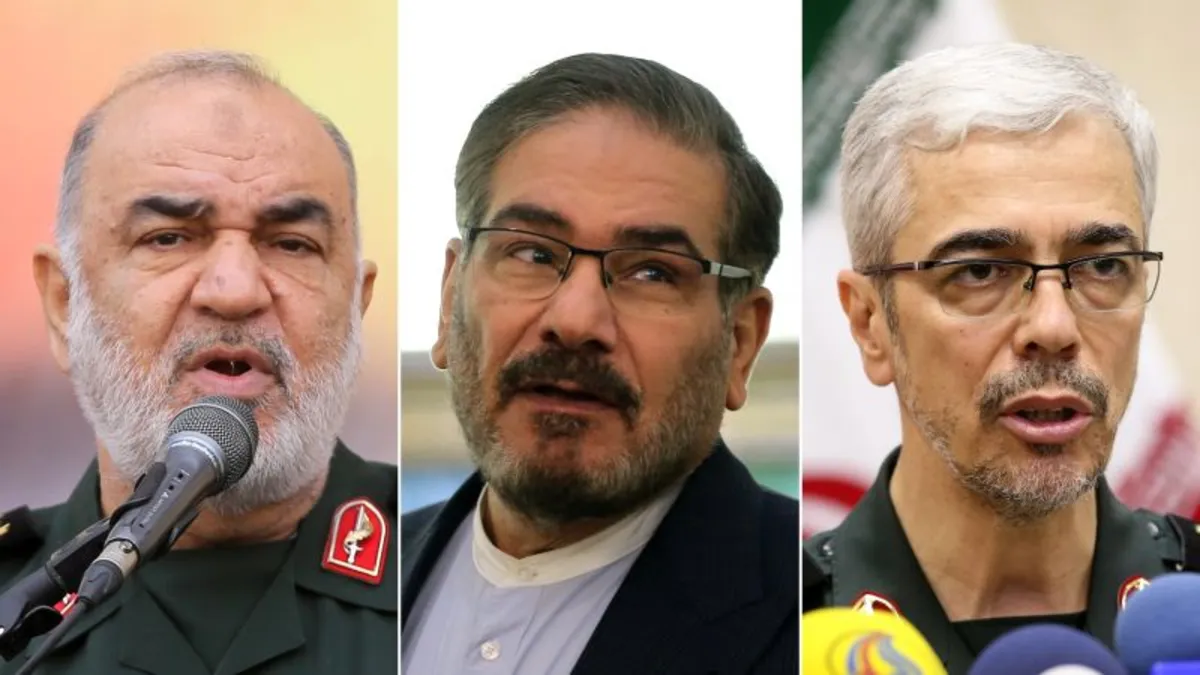
In a shocking turn of events, Iran's highest-ranking military officials—including the head of the elite Islamic Revolutionary Guard Corps (IRGC), its air force commander, and a former national security chief—were killed in Israel’s Operation Rising Lion. This unprecedented military operation is likely to send ripples through Iran’s military establishment and may significantly impair the Islamic Republic's capacity to respond to Israeli attacks.
Major General Hossein Salami was one of the most influential figures in Iran, leading the IRGC since 2019 and overseeing one of the country’s most formidable military branches. Born in 1960, Salami reported directly to Iran's Supreme Leader, Ayatollah Ali Khamenei. Under his leadership, the IRGC has been pivotal in suppressing dissent within Iran and projecting the nation’s power across the Middle East.
Analysts highlight that the IRGC manages a vast network of militias throughout the region, enabling it to target US and allied military personnel. The corps has also provided substantial support to groups like Yemen’s Houthis, facilitating strikes on international shipping in the Red Sea and launching missiles at Israel. Salami was at the forefront when Iran conducted its first direct drone and missile strikes on Israeli territory in 2022.
In a notable incident captured by Iranian state media, Salami was filmed inspecting an underground military facility purportedly linked to these attacks. The facility was reportedly manufacturing “new special missiles,” underscoring Salami's critical role in Iran's military advancements. He also faced international scrutiny when the IRGC mistakenly shot down a Ukrainian passenger jet in 2020, resulting in the tragic loss of 176 lives.
Major General Mohammad Bagheri served as the chief of staff of Iran's armed forces since 2016, overseeing a military force that could mobilize over 500,000 active personnel. The General Staff, under Bagheri's leadership, is responsible for implementing military policy and coordinating activities within Iran's armed forces. Sanctioned by the US in 2019 for his role in oppressive policies, Bagheri was recognized as a key military figure by international observers.
Bagheri was known for his diplomatic engagements, including a significant meeting with Saudi Defense Minister Prince Khalid bin Salman Al Saud in 2024. This rare encounter highlighted the potential for dialogue between Iran and Saudi Arabia amidst escalating tensions in the region. Reports indicated that during this meeting, the Saudi minister urged Bagheri to consider negotiating a nuclear agreement with the US to prevent conflict with Israel.
Ali Shamkhani was a close advisor to Ayatollah Khamenei and served as Iran’s national security chief for a decade, from 2013 to 2023. Known for his diplomatic acumen, Shamkhani played a crucial role in negotiations that restored diplomatic ties with Saudi Arabia. His death, confirmed by Iranian state TV following the Israeli strikes, marks a significant loss for Iran's foreign policy apparatus.
Shamkhani was involved in high-stakes negotiations, including talks with Chinese officials that led to a landmark agreement with Saudi Arabia. His ambitions were apparent during his run for the presidency in 2001, although he was later perceived as too ambitious by Khamenei. Despite this, he remained a trusted aide, advising on nuclear discussions with the Trump administration and warning of potential escalations in Iran's nuclear strategy.
The death of Amir Ali Hajizadeh, commander of the IRGC’s Air Force, represents a significant setback for Iran's military capabilities. As the leader of Iran's missile program, Hajizadeh was integral to both national defense and offensive operations, including orchestrating missile attacks on US bases and previous assaults on Israel.
Hajizadeh was a key figure in the IRGC's military strategy and was reportedly killed alongside other senior air force officials during an Israeli strike at an underground command center. His leadership in past attacks highlights the operational importance of his role within Iran's military establishment.
The deaths of these high-ranking military officials could have profound implications for Iran's military strategy and its ability to respond to external threats, particularly from Israel. As the Islamic Republic grapples with these unprecedented losses, analysts will be closely monitoring the potential shifts in Iran's military operations and its geopolitical posture in the region.